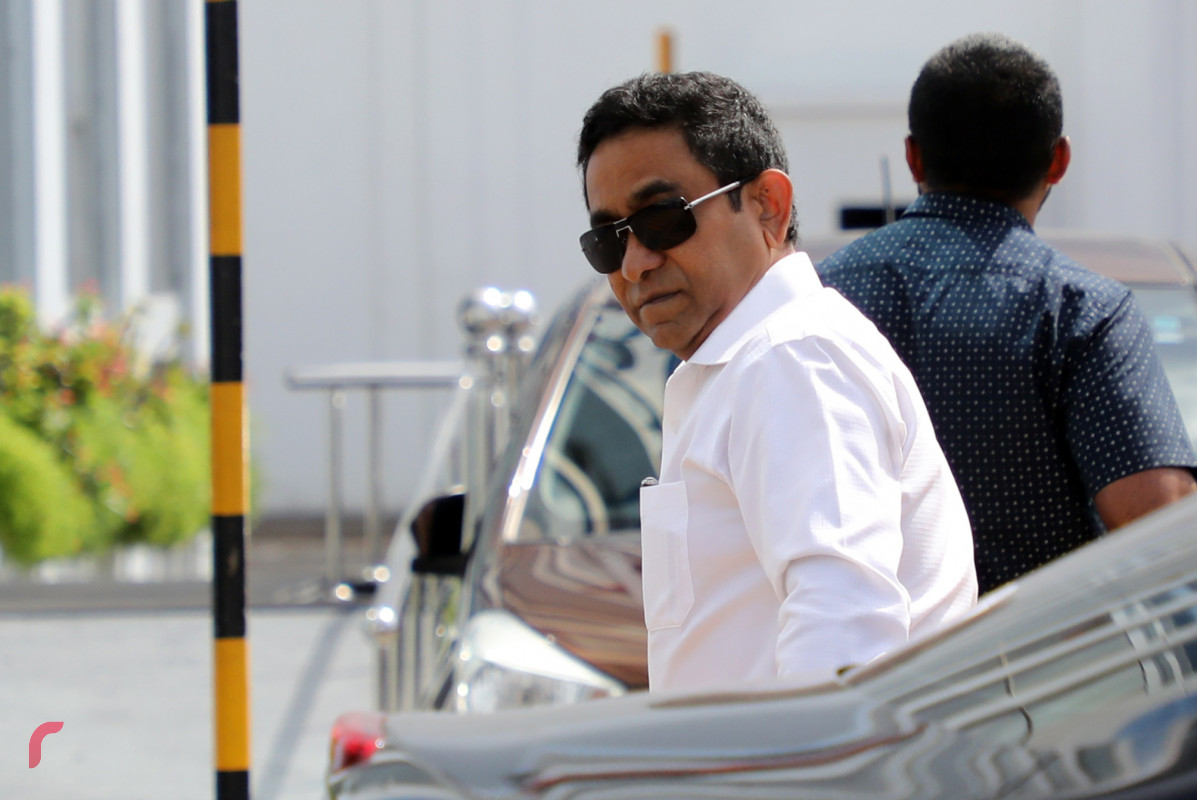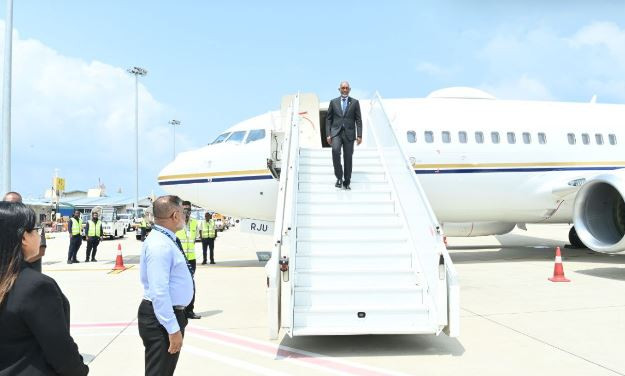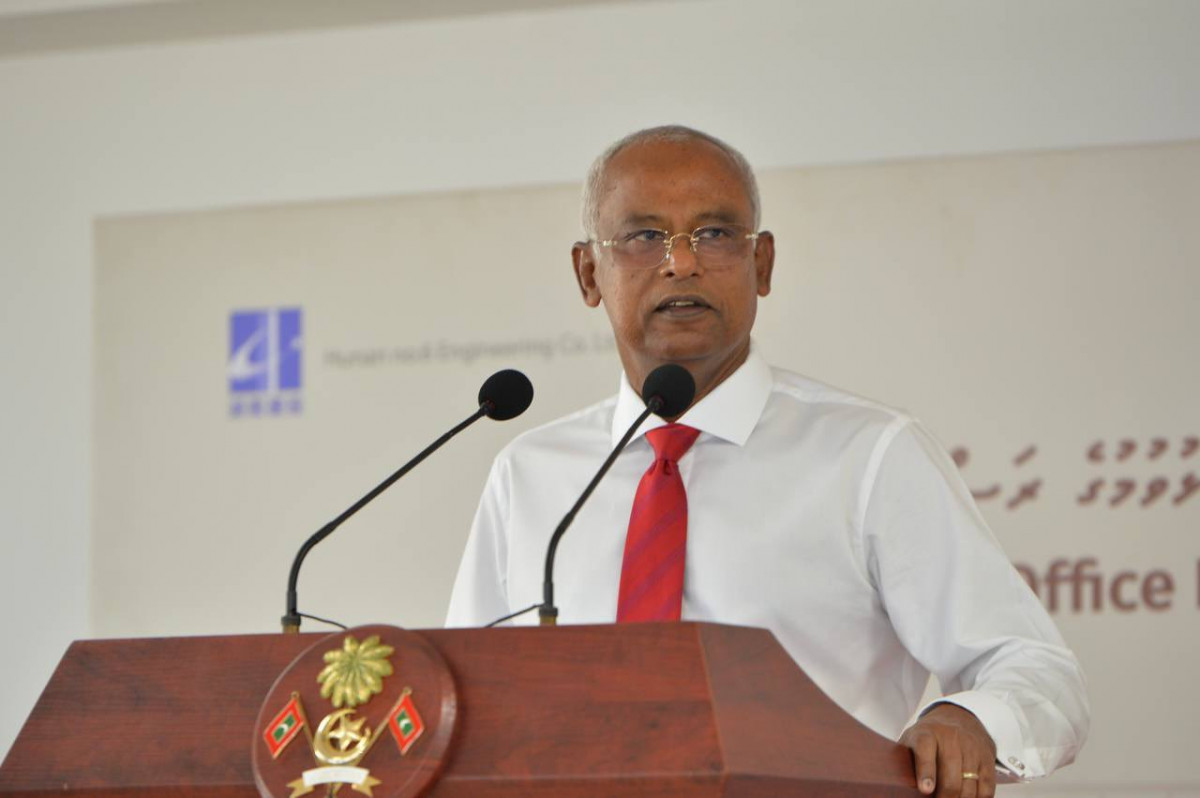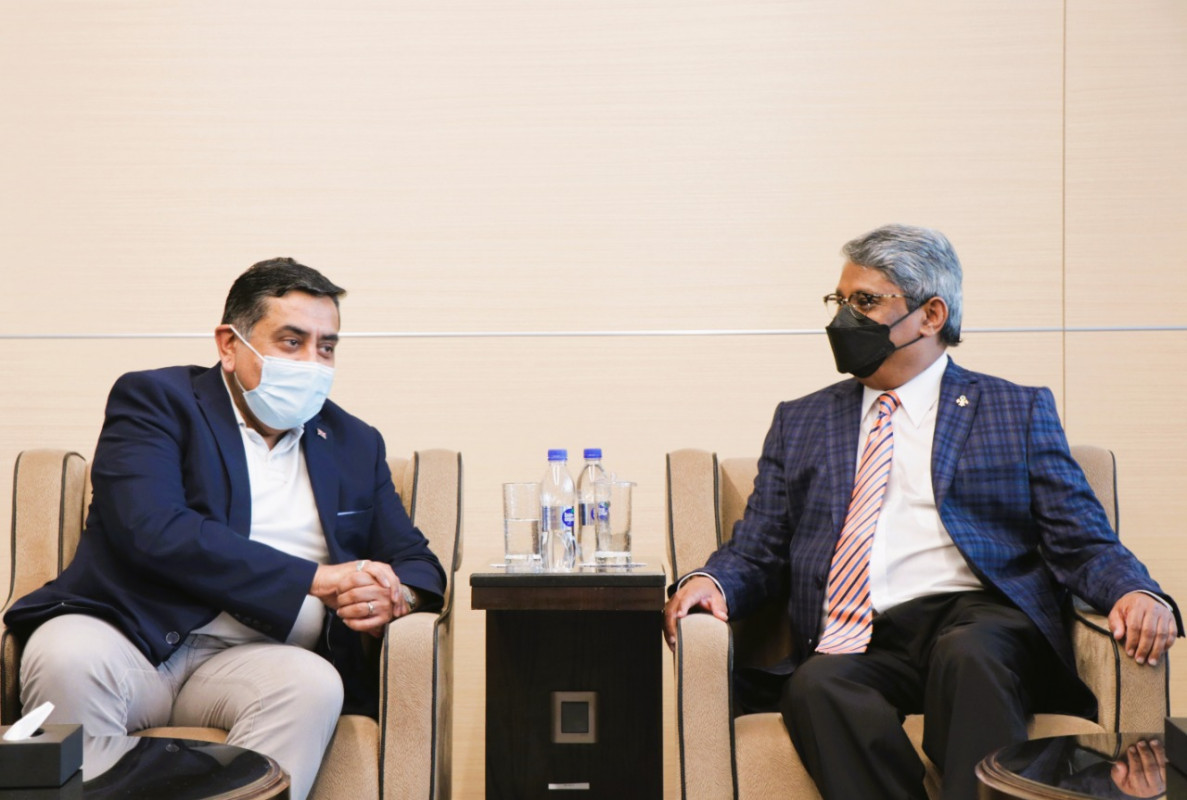Top court upholds order unfreezing ex-president’s bank accounts
The former president’s accounts were frozen in December 2018 under a Criminal Court order


Former President Abdulla Yameen
The Supreme Court has on Thursday upheld the High Court ruling nullifying an order to freeze former President Abdulla Yameen’s bank accounts.
The former president’s accounts were frozen in December 2018 under a Criminal Court order, as police investigated the money-laundering allegations against him. However, the High Court nullified the freeze order on March 31, and the state had appealed it at the Supreme Court shortly after.
At the verdict hearing on Thursday, the top court ruled that the order to freeze eight accounts related to the former president over the escrow account issue was issued “unlawfully” with the bench voting unanimously to uphold the High Court verdict.
Former President Yameen was in November 2019, convicted for laundering USD one million through the state-owned Maldives Marketing and Public Relations Corporation (MMPRC), via a private company SoF, during his presidency.
He was sentenced to five years in prison and fined USD five million.
Yameen had made an agreement with the Anti-Corruption Commission (ACC), to create an escrow account at Bank of Maldives (BML) to deposit the MMPRC funds.
He violated the terms of the agreement, by depositing money from the account of Moosa Zameer, a tourism minister during his presidency, into the escrow account instead of the funds from his own account which was transferred to a general investment account and used for his personal gain for 36 months.
Zameer’s statement to the anti-corruption watchdog shows that the USD one million was transferred on Yameen’s orders; he is to have done so after selling his own land in Hulhumale' for USD two million.
While Yameen's defence stated that the money deposited into his account was money donated to his campaign by the Progressive Party of Maldives (PPM), the Political Parties Act clearly states that funds of the political party must only be deposited to a bank account under the party's name.






